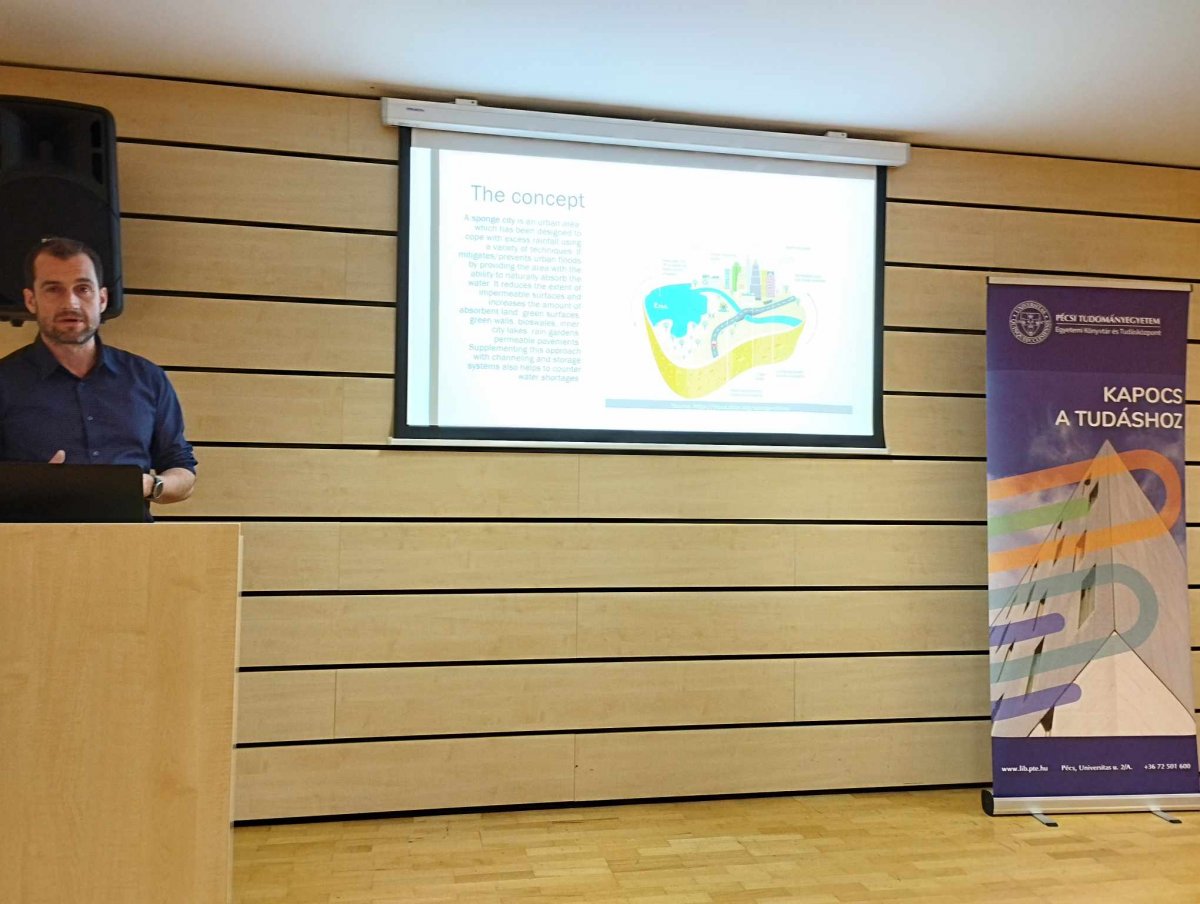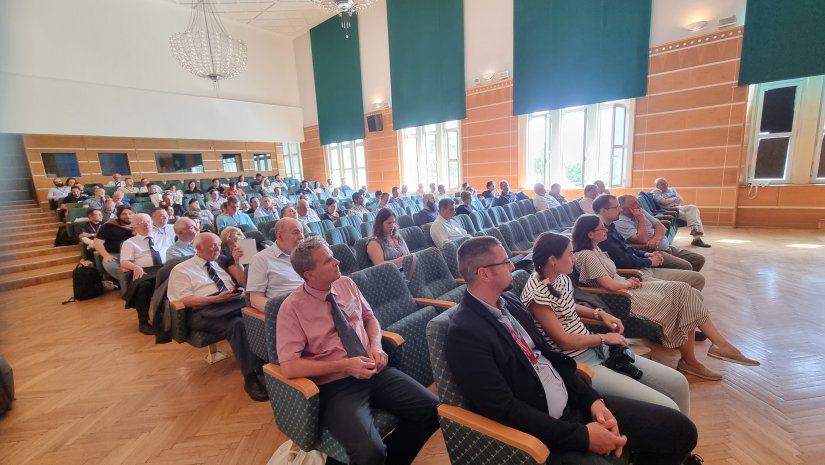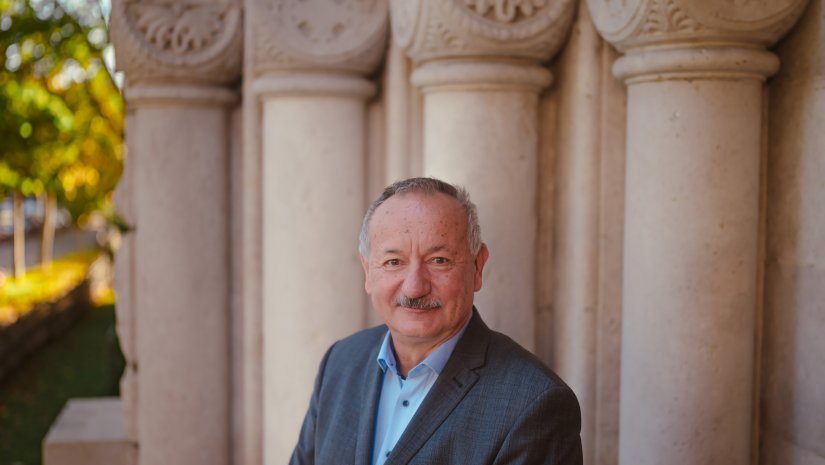Several projects related to the Green University Program were mentioned during a lecture held by Balázs Borkovits (UP Chancellery). The event was organized by the Green Library Working Group of the UP University Library and Knowledge Centre on 23 January.
Beyond previous projects (e.g. field tables, Planet Budapest, international video competitions for students) the brand new program called "Sponge City" has been launched in January 2024. Its aim is to help scientists and researchers develop solutions for real urban problems that can address climate change and flash floods in cities.

UP Chancellery experts are now working with the Urban-development Commission of the municipal government of Pécs and plan to involve the public to address these problems. Rain gardens are areas under which the soil structure has sufficient water retention capacity.
"The aim of the Sponge City is to ensure that large amounts of rainfall can be successfully stored and used for irrigation/ and as firewater"
said Balázs Borkovits. The project is based on the scientific works of Dr. Ervin Pirkhoffer and Dr. Szabolcs Czigány, who research flash floods at the Faculty of Sciences, University of Pécs.

The project is led by UP, involving thirteen partners in twelve countries. "We have participating cities with different geographical characteristics, so we have the opportunity to test our models in cities with large populations, small populations, on mountains, hilly or flat areas" said Balázs Borkovits.
Rain gardens will be built in 4 cities and their impact will be tested. In Pécs, the project will be implemented in the Botanical Garden, on the grassy area at northeast side of the swimming pool. This is a 10x3 m area where 5 plastic tanks will be placed below ground level, filled with different soil mixtures and topped with native perennial plants. Underground sensors will be used to measure the soil moisture, which will be recorded by a weather station of the Faculty of Sciences. The plan for the rain garden model of Pécs is to be the first to be completed, so its early data and experiences can be used in other cities as well.
Written by: Éva Harka, UnivPécs






